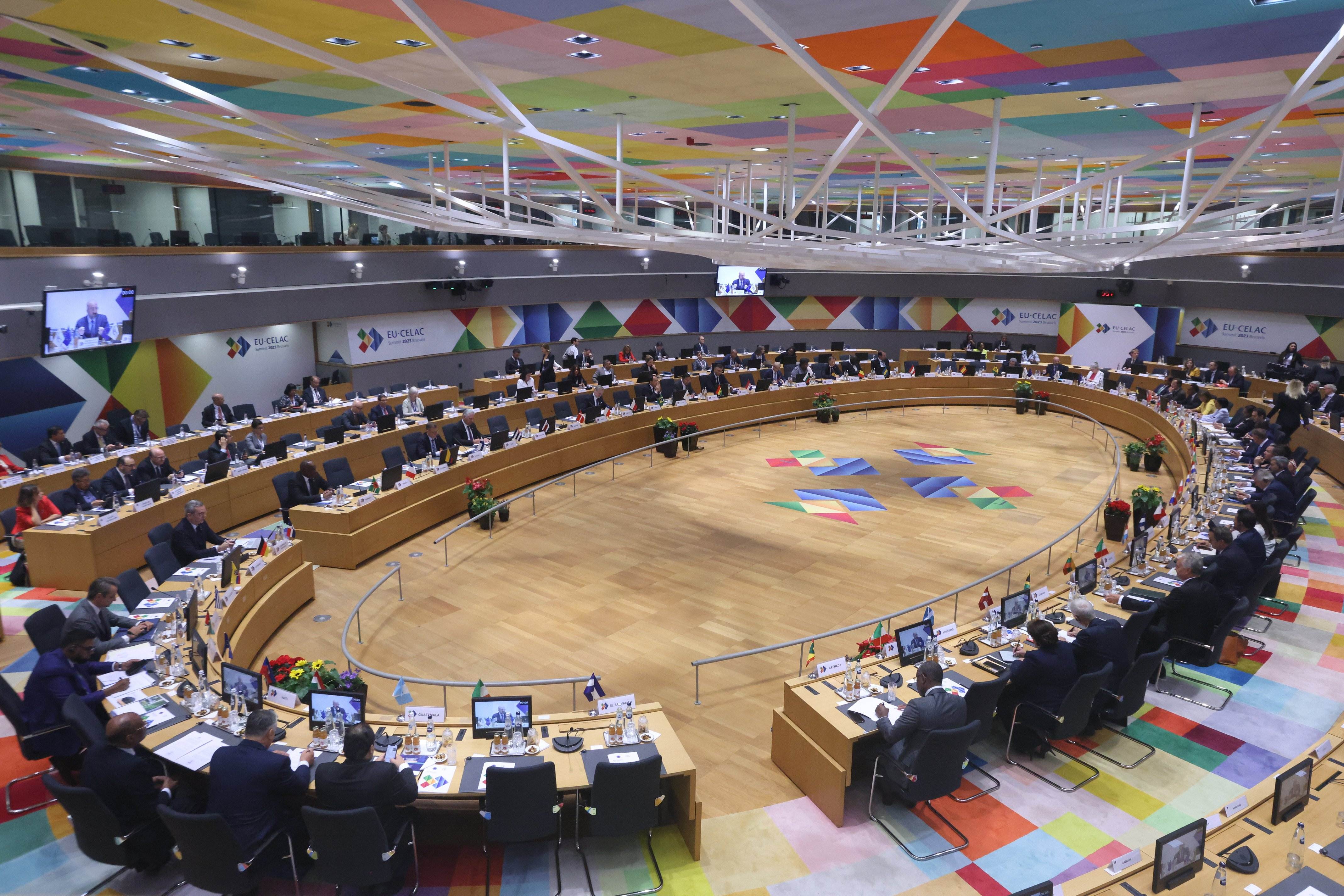The European Union's Council has made public the agenda for its next meeting on September 17th, at which member states' European or foreign affairs ministers will take part. On the agenda, there is the question of incorporating Catalan, Galician and Basque as fully-fledged official languages of the EU. This is a demand being made by the Spanish state, proposed by the foreign ministry, in line with the agreement reached between Together for Catalonia (Junts) and the Spanish Socialists (PSOE) for the constitution of the Bureau, the governing organ of the Spanish Congress.
To carry out the proposal, the agenda specifies the amendment of Regulation number 1 and notes that Spain will present the proposal, which will be followed by an exchange of views and, as it says, the proposal's "adoption".
Illa sees many possibilities for it to move forward
With respect to the proposal, the first secretary of the Catalan Socialist Party (PSC), Salvador Illa, said this Tuesday in an interview on Catalan public television that "there is a very good chance that the officialization of Catalan will go ahead". "Work is being done so that it can be achieved. You have to work so that no one vetoes you. I have a lot of confidence in Spanish diplomacy," explained the Socialist leader.
The Spanish government, working on it
A similar view was expressed by the acting Spanish foreign minister, José Manuel Albares, this past weekend. Albares affirmed that the executive has no evidence of any opposition from the 27 member states that are part of the Council of the European Union to the motion to grant official EU language status to Catalan, Galician and Basque. Thus, Albares is confident that the "firm proposal", which is the result of the agreement between Junts and the PSOE on the constitution of the Congressional Bureau, will go ahead on September 19th.
"The Spanish government's proposal is clear and firm," Albares stressed in an interview with EuropaPress. The minister asserts that in recent weeks he has discussed this matter with his European partners and also took advantage of the informal meeting of the European Union's foreign ministers in Toledo this past Thursday to discuss the matter.
What are the current 24 official languages of the EU?
As the EU has grown, so has the number of its official languages. The last language to achieve this status was Croatian. If none of the 27 member states veto the Spanish proposal on September 19th, Catalan, Basque and Galician will be next.
- 1958: German, French, Italian, Dutch
- 1973: Danish, English
- 1981: Greek
- 1986: Spanish, Portuguese
- 1995: Finnish, Swedish
- 2004: Czech, Slovak, Slovenian, Estonian, Hungarian, Latvian, Lithuanian, Maltese, Polish
- 2007: Bulgarian, Irish, Romanian
- 2013: Croatian
The three languages whose officiality will be considered on September 19th have a combined total of over 13 million speakers: the largest of the three in terms of speakers is Catalan, which has about 10 million speakers, mostly in the Spanish state (centred on Catalonia, Valencia, and the Balearic Islands) but also extending into France, Italy and Andorra (where it is already the official language); Galician has around 2.4 million speakers, centred on Galicia in Spain's north-west, just above Portugal - whose principal language, Portuguese, it is closely related to; and the third language is Euskera (Basque), a language "isolate" - that is, completely unique, and unrelated to any other known language - with almost 800,000 speakers, mostly in Spain's Basque Country and Navarra, and in the French parts of the Basque lands on the northern side of the Pyrenees.

